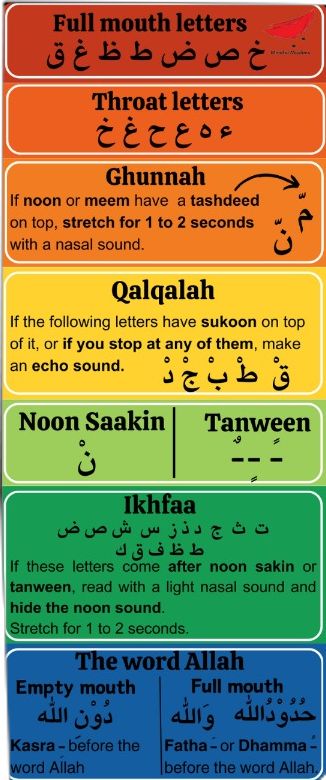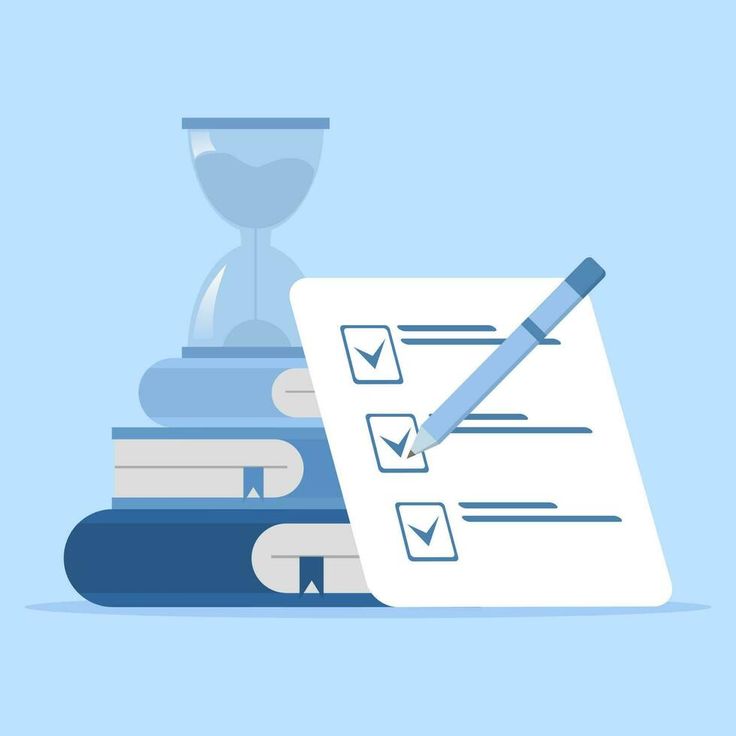
If you want to learn to read Quran online, you’re not just mastering words — you’re opening a direct door to Allah’s words and wisdom. Whether you’re a complete beginner, returning after years, or helping your children start, every step in this journey brings light to your heart and peace to your life.
In today’s world, with online Quran classes and digital tools, learning has never been easier or more flexible. Thanks to modern technology, you can start right from your home — at your own pace — and build a connection with the Quran that lasts a lifetime.
In this guide, you’ll discover everything you need to know: from learning the Arabic alphabet and mastering Tajweed, to avoiding common beginner mistakes, staying motivated, and ultimately making Quran study a natural part of your daily life.
So, let’s begin your journey toward reading the Quran with understanding, love, and above all, confidence.
Why You Should Learn to Read Quran

Learning to read the Quran is one of the most important acts in Islam. It is not only a means of gaining knowledge but also a source of spiritual elevation and closeness to Allah (SWT). The Quran, revealed to Prophet Muhammad (SAW) over 22 years through Angel Jibreel, is a timeless guide for all mankind, providing guidance, wisdom, and comfort in every aspect of life.
1. Spiritual Rewards and Blessings
To learn to read Quran brings immense spiritual rewards and deep inner peace. Prophet Muhammad (SAW) said:
خَيْرُكُمْ مَنْ تَعَلَّمَ الْقُرْآنَ وَعَلَّمَهُ
“The best among you are those who learn the Qur’an and teach it” (Bukhari). Every letter you recite carries blessings and rewards from Allah (SWT).
Purification of Heart: The Quran acts as a healing for the soul, cleansing it from negativity and spiritual impurities
يَـٰٓأَيُّهَا ٱلنَّاسُ قَدْ جَآءَتْكُم مَّوْعِظَةٌۭ مِّن رَّبِّكُمْ وَشِفَآءٌۭ لِّمَا فِى ٱلصُّدُورِ وَهُدًۭى وَرَحْمَةٌۭ لِّلْمُؤْمِنِينَ ٥٧
O humanity! Indeed, there has come to you a warning from your Lord, a cure for what is in the hearts, a guide, and a mercy for the believers.
(Surah Yunus 10:57).
Daily Rewards: Regular recitation — even a few verses — brings continuous rewards for those who make it a part of their lives.
Night Prayers: Reciting the Quran during night prayers strengthens obedience and closeness to Allah. The Prophet (SAW) said: “If anyone prays at night reciting regularly ten verses… one thousand verses, he will be recorded among those who receive huge rewards” (Sunan Abu Dawood).
2. Understanding Allah’s Message
Learning to read the Quran is the first step, but understanding its message deepens faith and guides actions.
- Guidance in Life: The Quran provides clear guidance to distinguish right from wrong:
ذَٰلِكَ ٱلْكِتَـٰبُ لَا رَيْبَ ۛ فِيهِ ۛ هُدًۭى لِّلْمُتَّقِينَ ٢
This is the Book! There is no doubt about it1—a guide for those mindful ˹of Allah˺,2 (Surah Al-Baqarah 2:2). - Purpose of Existence: It explains why we were created and how to live a purposeful life, e.g.,
- ٱلَّذِى خَلَقَ ٱلْمَوْتَ وَٱلْحَيَوٰةَ لِيَبْلُوَكُمْ أَيُّكُمْ أَحْسَنُ عَمَلًۭا ۚ وَهُوَ ٱلْعَزِيزُ ٱلْغَفُورُ٢ “He created death and life to test you as to which of you is best in deed” (Surah Al-Mulk 67:2).
- Emotional Peace: Reading the Quran brings tranquility and reassurance during times of hardship and uncertainty.
3. Strengthening Connection with Allah
Reciting the Quran is an intimate conversation with Allah. Every word spoken in worship strengthens the believer’s faith and mindfulness.
- Daily Mindfulness: Reciting Al-Fatihah during prayers is not just a routine; it is a dialogue between the believer and Allah.
- Closeness to Creator: The Prophet (SAW) illustrated that Allah responds to the worshiper’s praise in two halves, making recitation a source of spiritual intimacy (Sahih Darussalam).
Step-by-Step Guide to Learn to Read Quran
Learning to read the Quran is a beautiful journey that connects you with Allah (SWT) and brings immense spiritual rewards. This guide is designed for beginners and will help you take small, consistent steps to build your knowledge, understanding, and love for the Quran.
1. Start with the Arabic Alphabet

The very first step to learn to read Quran is getting comfortable with the Arabic letters. First of all, start by focusing on each letter’s shape and pronunciation — this makes reading words correctly much easier right from the beginning. As you progress, try combining letters to form simple words. Eventually, this practice will help you recognize patterns and read verses more fluently. In addition, pay attention to how each letter changes sound depending on its position in a word — beginning, middle, or end. Step by step, you’ll notice your reading becoming smoother and more confident.
Why Makharij (Articulation Points) Matter
Makharij are the exact points in the mouth and throat where each Arabic letter should be pronounced. Understanding them is the foundation of proper Tajweed. When you know how and where each letter comes from, your recitation becomes clear, beautiful, and avoids common beginner mistakes.
2. Learn to read Quran by learning Basic Tajweed Rules

Tajweed is the art of reciting the Quran exactly as it was revealed.
Focus on Short and Long Vowels
Short vowels (ḥarakāt) and long vowels (madd) might seem small, but they make a huge difference in clarity and correct pronunciation.
Common Beginner Mistakes
New learners often drop vowels or mispronounce letters. The best way to fix this is daily practice and listening to qualified reciters like Al-Minshawi and Al-Hossary.
Tip: Even just 5 minutes a day of Tajweed practice will improve your recitation noticeably over time.
3. Practice Simple Words and Short Surahs
Start small by choosing short, easy-to-memorize verses like Al-Fatihah, Al-Ikhlas, Al-Falaq, and An-Nas. These brief surahs are perfect for beginners who want to learn to read Quran because they help your heart and mind get familiar with the rhythm of the Quran, making memorization much easier and more enjoyable.
How to Practice:
- Repeat each verse several times until it feels natural.
- Break the verse into smaller lines to make memorization simpler.
- Record yourself and listen back, or compare with a teacher or qualified reciter.
- Reinforce your learning by reciting these verses in your daily prayers.
Tip: Consistency beats long sessions. Even 10–15 minutes a day of focused practice is more effective than a single long session. Small, steady steps will help you progress faster and retain what you learn while you learn to read Quran with confidence.
4. Use the Qaida Noorania or Noor Al-Bayan Method
Start with Qaida Noorania or Noor Al-Bayan. These methods guide you step by step, from letters to words, helping you build confidence and avoid common mistakes.
Why It Helps: Having a clear, guided path makes learning less overwhelming and keeps you motivated as you progress to longer verses and surahs.
5. Listen and Repeat from Qualified Teacher

Hearing native reciters is one of the fastest ways to improve your pronunciation and Tajweed. Listening shows you how letters, vowels, and rules come together naturally.
How to Practice
- Repeat what you hear daily and try to mimic the pronunciation.
- This builds fluency and strengthens your understanding of the Quran over time.
How to Learn to Read Quran Online
In today’s world, online Quran learning has made it easier than ever for anyone — from busy adults to young learners — to begin their Quran journey from the comfort of home. You no longer need to worry about commuting or scheduling conflicts. With the right guidance, tools, and support, you can build a consistent, rewarding connection with the Quran no matter where you are.
One-on-One Online Quran Classes

One-on-one classes are the most effective and personalized way to learn to read the Quran online. Instead of following a general curriculum, your teacher tailors every lesson to your pace, goals, and level of understanding.
At Areeb Academy, we’ve seen how personal attention transforms learning. Whether you’re a complete beginner, a parent looking for qualified Quran tutors for your children, or an adult who wants to refresh Tajweed skills — private lessons ensure you get the exact support you need.
Benefits include:
- Personalized attention: Your teacher focuses entirely on your progress and pronunciation.
- Flexible schedules: Choose class times that fit your daily routine — mornings, evenings, or weekends.
- Comfort of home: Learn peacefully from your own space, with no need to travel.
- For all levels: Kids, adults, and non-Arabic speakers can all progress at their own pace.
- Progress tracking: Regular feedback helps you see how far you’ve come and what to improve next.
Tip: Always look for academies that provide trial classes so you can experience the teaching style before enrolling.
Choosing the Right Online Academy

Not all online Quran programs are the same — and choosing the right one can make all the difference in your learning experience. A trustworthy, professional academy ensures you learn correctly, confidently, and with genuine spiritual growth.
Here’s what to look for when choosing your Quran academy:
- Qualified, Certified Teachers: Make sure your teachers are certified and trained in Tajweed and Quranic Arabic.
- Female Tutors for Women and Children: Many learners feel more comfortable with female instructors — especially young girls and women — which helps them learn confidently.
- Structured Curriculum: The best academies offer a clear, step-by-step path — from Noorani Qaida to fluent Quran recitation and Tajweed.
- Trial Classes: Before you commit, join a free trial to experience the teaching style and see if it fits your needs.
- Interactive, Supportive Environment: The right academy doesn’t just teach; it motivates. Teachers follow up, give feedback, and encourage students every step of the way.
- Flexible Plans: Look for flexible scheduling and payment options so your learning stays consistent without stress.
At Areeb Academy, we take pride in creating a supportive and welcoming online environment where every student — child or adult, beginner or advanced — feels confident and motivated. Our goal is simple: to help you connect deeply with the Quran and build a lifelong love for reciting and understanding it.
Common Mistakes Beginners Make When Learning to Read Quran
1. Memorizing Without Understanding the Letters
However, one of the biggest mistakes new learners make when they learn to read Quran is rushing to memorize without first mastering the Arabic letters and their sounds. The Quran is written in precise Arabic, so each letter and vowel matters. Take your time to understand how each letter is pronounced and how it changes the meaning of a word. Building this strong foundation will make your reading, recitation, and memorization much smoother as you continue to learn to read Quran confidently.
2. Ignoring Tajweed Rules
Tajweed isn’t just about sounding beautiful — it’s about reciting the Quran exactly as it was revealed. Skipping Tajweed rules can lead to incorrect pronunciation, which may change meanings. A qualified teacher can guide you through the basics like short and long vowels, Qalqalah, and Noon Saakin, helping you build accuracy and confidence in your recitation.
Tip: Even five minutes a day of Tajweed practice makes a real difference.
3. Skipping Daily Recitation Practice While Learning to Read Quran
The key to progress is consistency. Many beginners make the mistake of practicing only once or twice a week. But just 10–15 minutes every day will help you improve faster and retain what you’ve learned. Treat it like a daily conversation with Allah — something peaceful and personal that you look forward to.
4. Not Having a Teacher or Mentor
Learning to read Quran can feel challenging when you’re on your own. That’s why having a teacher or mentor is incredibly helpful. A good teacher corrects your pronunciation (Tajweed), explains the meanings of verses in simple terms, and keeps you motivated to stay on track. You don’t have to be perfect — just be teachable, and step by step, you’ll confidently learn to read Quran.
5. Not Understanding the Meaning While You Learn to Read Quran
The Quran isn’t meant to be recited only — it’s meant to be understood. Take time to reflect on what you’re reading. Use trusted English translations or Tafsir to understand the deeper meaning behind the words. When you know what Allah is saying to you, your connection to the Quran becomes personal and heartfelt.
6. Not Being Patient
Learning the Quran is a lifelong journey. Don’t get discouraged if you stumble or progress feels slow. Every effort counts, and Allah rewards your sincerity and perseverance. Be patient with yourself — improvement will come, one verse at a time.
7. Not Finding the Right Learning Method
Everyone learns differently. Some people thrive in live classes, others prefer learning online or through self-study. Choose the style that fits your routine and personality best, and stay consistent. What matters most is not speed — it’s dedication.
8. Being Afraid to Make Mistakes When You Learn to Read Quran
Still, many beginners hesitate to read aloud because they’re scared of making mistakes. But remember — the Prophet ﷺ said the one who struggles while reciting gets double the reward. Mistakes are just part of learning. Keep reading, keep trying, and your confidence will grow with time.
9. Not Making Quran Learning a Priority
When you make Quran learning a daily priority, you’ll notice its light spreading into every part of your life. Learning the Quran isn’t just about study — it’s about building a relationship with Allah. If you dedicate time to it sincerely, Allah will make your path easy, in shaa Allah.
Tips to Stay Motivated While You Learn to Read Quran
- Set daily goals (5–10 minutes)
You don’t need long study sessions to make progress. Even 5–10 minutes of focused Quran time each day adds up over weeks and months. Choose a small, clear goal — like revising one page, learning a new Tajweed rule, or reflecting on one verse — and stick to it. Small steps build big habits.
- Reward your progress
Celebrate every milestone — no matter how small. Finished a surah? Treated yourself to a favorite snack. Memorized a new verse? Share it with your family or friends. Rewarding yourself keeps the journey positive and reminds you that learning the Quran is something joyful, not stressful.
- Reflect on what you learn
Don’t rush through your recitation or memorization — take a moment to think about the meaning of what you’re reading. Ask yourself: What is Allah teaching me in this verse? Reflecting on the Quran helps you connect deeply with its message and makes your learning more meaningful and lasting.
- Stay Consistent, Even on Busy Days
Consistency is more powerful than intensity. Even if you can only read a few verses on a busy day, don’t skip your connection with the Quran. A short, sincere recitation keeps your heart attached and your momentum strong. Remember — it’s better to read a little every day than a lot once in a while.
Final Thoughts

Learning to read the Quran isn’t a race — it’s a lifelong relationship built on patience, sincerity, and small, steady steps. Every verse you read, every letter you pronounce, and every effort you make is noticed by Allah (SWT).
Don’t worry about perfection — focus on connection. The Quran will meet you where you are, comfort your heart, and guide your path.
Keep your intention pure.
Be consistent, even for 10 minutes a day.
And remember: every effort you make for the Quran is a form of worship.
Ready to start your Quran journey — the right way?
Join a Live Online Quran Class with certified, caring teachers who’ll guide you step-by-step.
Learn at your own pace, practice Tajweed, and build a real connection with the Quran — from the comfort of your home.
At Areeb Academy, our goal is not just to teach you how to read — but to help you connect with the Quran on a deeper level, so every word becomes an act of worship.
Start Your Free Trial Class Today
FAQs About Learning to Read the Quran
1. How long does it take to learn to read the Quran?
It depends on your consistency. With daily 15–20 minutes of practice and a good teacher, most beginners can start reading within 3–6 months.
2. Do I need to know Arabic first?
No. You can start learning the Quran even if you don’t know Arabic. Begin with Qaida Noorania or Noor Al-Bayan — they teach the letters and sounds step-by-step.
3. What if I make mistakes while reciting?
That’s perfectly fine. The Prophet ﷺ said: “The one who recites the Quran and stumbles through it, finding it difficult, will have double the reward.” Mistakes are part of learning.
4. Can I learn the Quran online effectively?
Absolutely. With the right teacher and structured program, online Quran classes can be just as effective as in-person ones — and often more convenient.
5. How can I stay motivated?
Set small goals, track your progress, join a study group, and remind yourself why you started. Every verse learned is a step closer to Allah’s pleasure.


